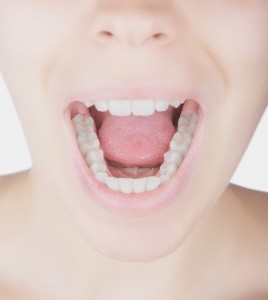 Your teeth have come a long way over the ages. Our early ancestors had quite a different set of choppers than we do now, largely because, well, they had a totally different needs than we do today. While we think the changes have been for the better, we’re not entirely off the hook: modern diets and lifestyles have introduced dental issues early man simply didn’t have to deal with. So, what kind of changes have occurred over the centuries? Check out our quick history lesson below!
Your teeth have come a long way over the ages. Our early ancestors had quite a different set of choppers than we do now, largely because, well, they had a totally different needs than we do today. While we think the changes have been for the better, we’re not entirely off the hook: modern diets and lifestyles have introduced dental issues early man simply didn’t have to deal with. So, what kind of changes have occurred over the centuries? Check out our quick history lesson below!
Diet played a huge role in the lives of early man, who spent much of his time hunting for food in order to have the energy to build and move around. Fossil records show that our ancestors had a very coarse diet that was difficult to chew. In order to cope with these challenging meals, large teeth — including particularly large molars and canines — were needed to tear and grind down tough meats, grains, nuts, and fruits. This took quite a toll on their mouths, as fossils show teeth were commonly worn down to the roots. That had to have hurt!
To accommodate such large teeth, early man also had a much larger jaw than we have now and the 3rd molars, known today as wisdom teeth, played a much more important role in chewing food. As diets became softer and easier to eat, our jaws shrunk. This has left less room in the most for the 3rd molars, which is why they frequently become impacted and need to be removed.
As we’ve discussed earlier, our ancestors were actually fairly adept at dental surgery and making instruments to clean their teeth. However, these tools were still quite primitive and fossil records show that in addition to dental wear, early man did have a plaque problem. How about cavities? Not so much! With the exception of fruits, there was little to no sugar in early man’s diet, and the enamel on the teeth was much thicker. Without sugar, there was less chance for bacteria to break down the enamel and create those pesky little holes.
Studies have also suggested that today, many heart-related diseases develop when oral bacteria make it way into the blood stream, but early man seemed to lack these problems. With sugars being the biggest culprit behind oral bacteria, this is one way our ancestors had a cleaner mouth than we do now. That’s not to say we’re swapping out our toothbrushes for leafy twigs, but it does go to show that even modern technology can’t always help man from himself.
It’s remarkable how our teeth and jaws have changed over the centuries in order to accommodate our changing needs and lifestyles. Although our ancestors didn’t have very effective ways to clean and maintain their teeth, they did the best with what they had to survive, which was no small feat! Got a question about how our mouths have evolved? Let us know in the comments!







Leave a Reply